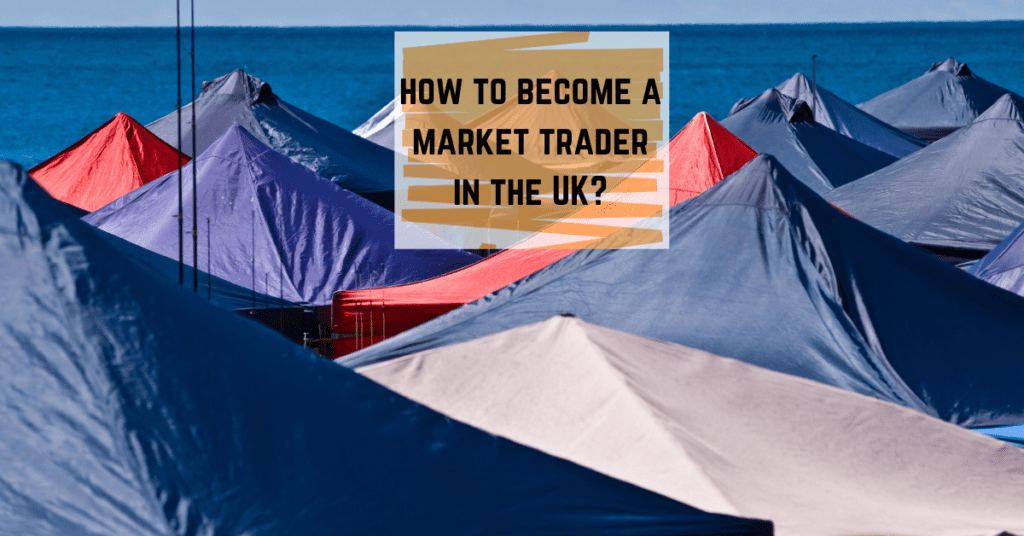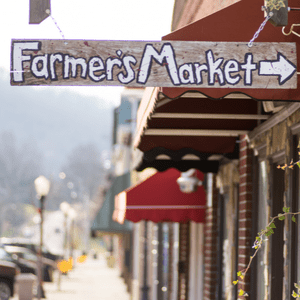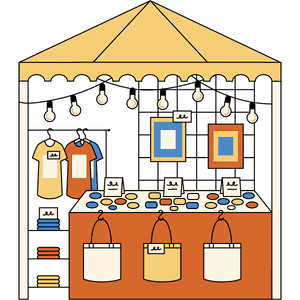
In the UK, being an entrepreneur is celebrated and encouraged, and setting yourself up as a market trader is one of the easiest things you can do to make money. As a general rule, all you need to do after you have secured your market pitch is to turn up and start trading.
If you don’t already have a business idea that you can develop, look at our Best Selling Products That Are Popular On A Market Stall article to give you some ideas.
If food is your passion, then some of these ideas may spark off a few of your own Food Stall Ideas: That You Can Start Today.
First Steps – Secure A Pitch
- Telephone or email the market organisers of the market that you want to trade at. Sometimes actually going to the market and speaking to the market manager of that event may give you an even better idea of what your next steps might be. When you do make contact, remember that you will need to paint your business in the best possible light from the get-go. The Organisers don’t know you or your product, so be sure to have your ‘elevator pitch’ ready. Most good markets won’t really want a rubbish-looking, amateur pitch detracting from all the other well-turned-out stalls. The better the market looks as a whole, the more money everybody will make and that includes the market organisers. If the stall holders make money, other stallholders will want to join the market and then when there is more demand than supply, the market organisers can put up their stall fees.
- If you get rejected straight away, or ‘put on a waiting list’, then definitely keep contacting them regularly to see if you have moved down the waiting list. Keep calling and keep visiting and speaking to the market manager. They will soon get the message that you are keen and you are more likely to get a pitch. The more difficult it is to get on a market, the better the market is.
- Sometimes the market you want to get onto is run by the council. This is very often a huge headache to get hold of anyone who actually cares about the market, so you may need to be much more pushy than usual. Dealing with council markets, unless they have a very good market department, is very often down to the luck of whoever you speak to. And the market is not often that good because the council don’t really care or have much experience in how to promote or run their market. See our article for some insights on a council-run event: Morpeth Weekly Retail Market – Review

Sort out Paperwork
The market organiser or council will usually only offer you a pitch once you have produced some sort of paperwork. And that paperwork will be different depending on the specific requirements of every organisation and what it is that you intend to sell. There are no hard and fast rules for what specific paperwork is required and it differs up and down the country. It is usually whatever the organising market body feels like asking for. Here are some documents that you may need to consider providing but rest assured that it is not as scary as it may look from this long list. Most markets will only require your insurance paperwork. And most paperwork is just emailed to the organiser anyway.

- Almost all will need to see proof of your insurance paperwork. Usually requiring between £5M and £10M public liability.
- If you are making and selling food, some kind of Environmental Health Registration paperwork will be needed. Again, the specific documentation needed will vary between councils, counties and countries. A general rule of thumb is that your own Environmental Health Department (EHO) will give you all the paperwork you will need for the specific requirements of each area. e.g. English EHO no longer issues official food hygiene ratings (scores on the doors), but will do so if you tell them that you are going to be trading in Wales – who insist on you trading with your hygiene rating displayed. I believe that once you register with your local EHO office, you are allowed to trade even if they have not yet had time to inspect your premises. But check with them first. Your local EHO should become your new best friends if you are intending to sell food and are always very helpful if you ask for their advice.
- Very few, but some markets ask for a food hygiene certificate – but this seems to be dying out now and most will not bother. But just know that it is a certificate you get from sitting an exam (easy) after listening to a food hygiene talk, either online or on a course. Only for food sellers though.
- Tens Licence – Mobile Alcohol Licence. If you decide to sell alcoholic drinks at a festival or event, you will need a Temporary Events Notice (TEN). But if you hire a stall from a market operator, they may have applied for this already and you won’t need to get one. You are usually only allowed up to 5 TEN’s a year BUT if you have a Personal Alcohol Licence you are allowed to do up to 50 a year. To get the Personal Alcohol Licence, www.gov.uk have a list of accredited course providers which offer training courses. Once a course has been successfully completed you can then apply for your Personal Alcohol Licence.
- If you are applying for a bigger show or festival, you may be asked for your risk analysis. This is a bit scary when you don’t know what it is, but it is very simple really and I include ours here: Event Risk Assessment Example:

Get Yourself To Market

Once you have been given the green light for a pitch make sure you know exactly what time and date you are booked in for. Establish the stall cost, parking arrangements (sometimes you can park for free in the marketplace – but usually it is in the local car park) and market times. You can’t decide to leave at 2.30 to pick up your child from nursery if the market finishes at 4 pm. Also, make sure you are aware of the market stall size so that you can bring an appropriate table covering. Some of the markets we do are from a huge 10-foot by 4-foot tabletop and we get our tablecloths especially cut to fit these tables.
Now, the rest is up to you!
Happy Trading!
